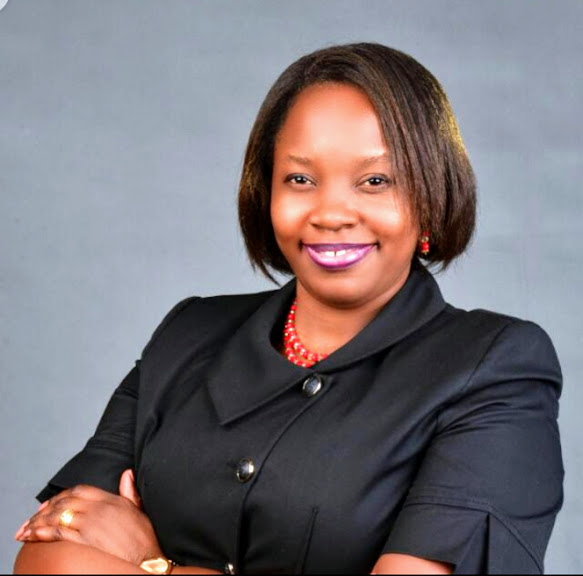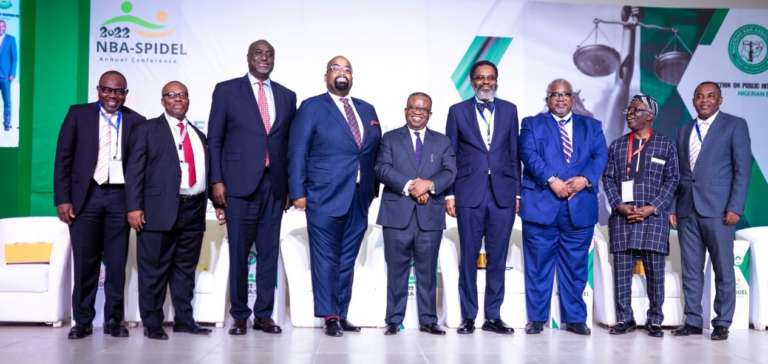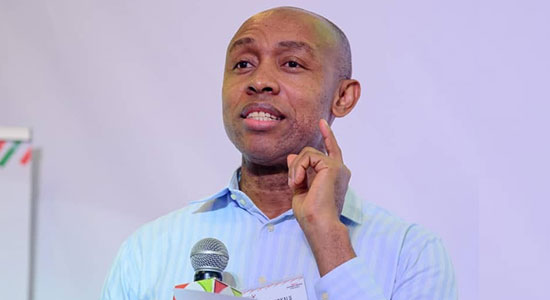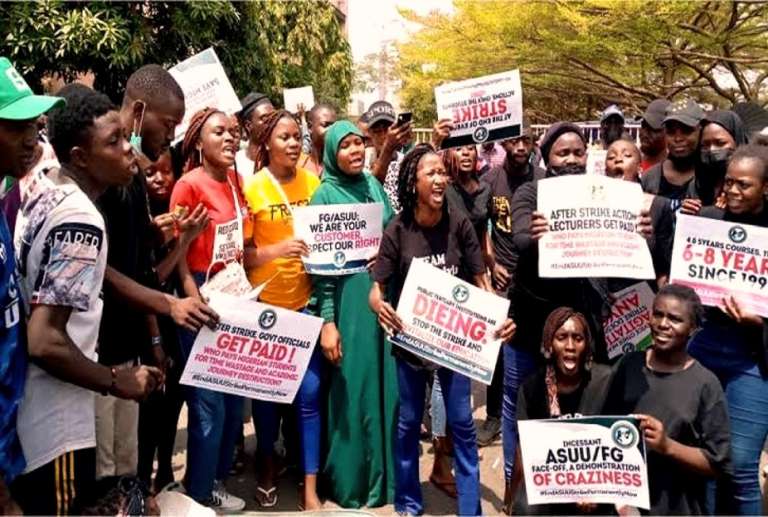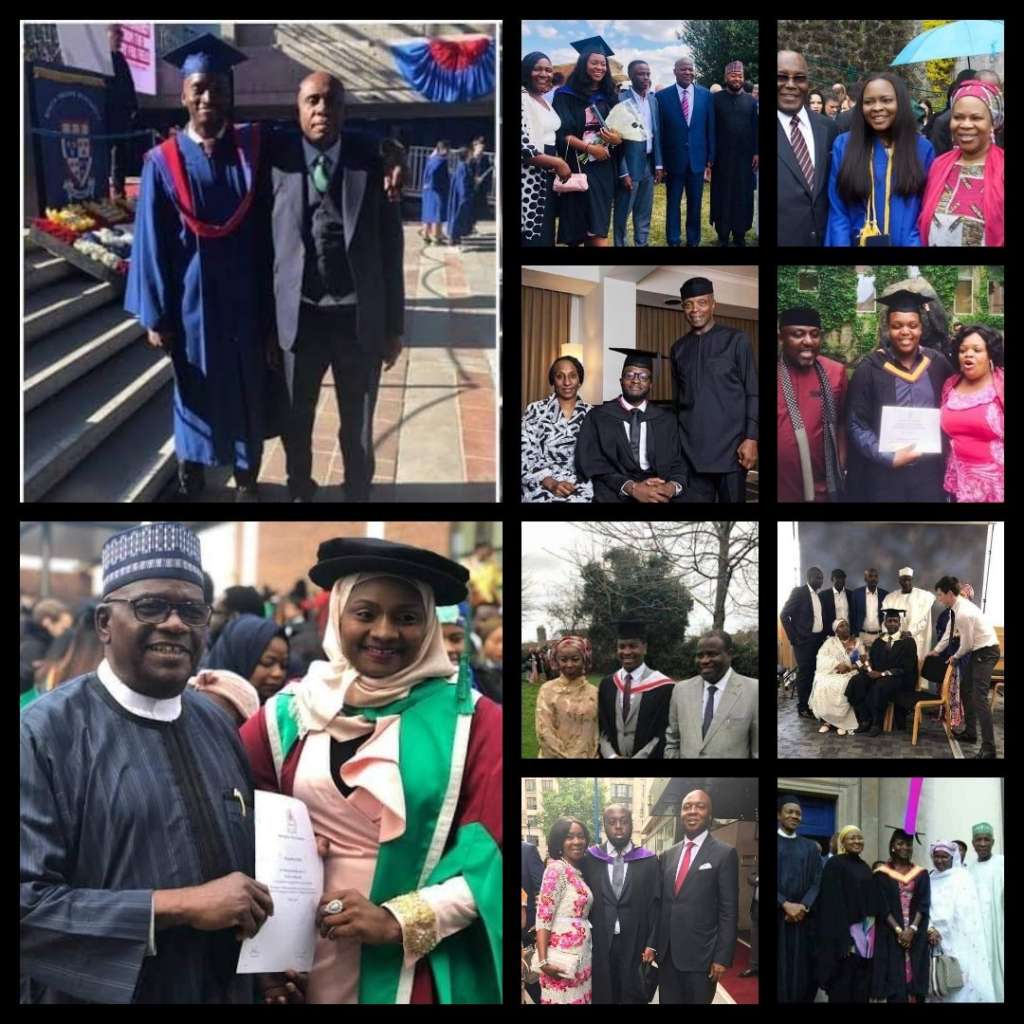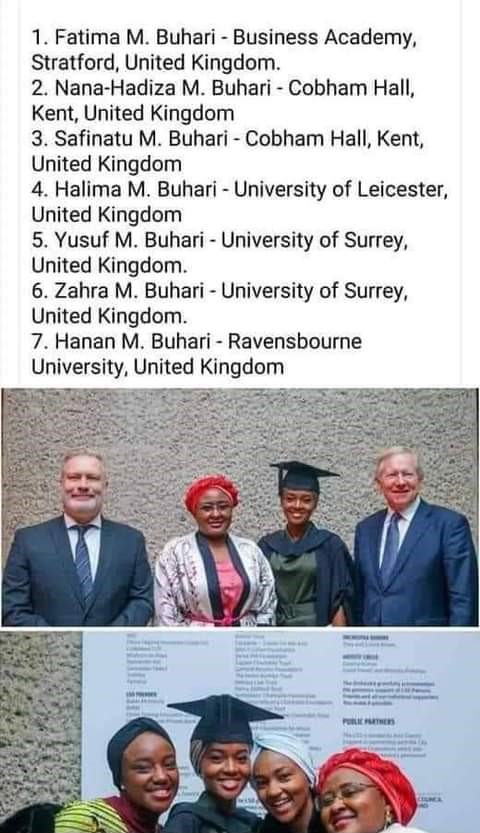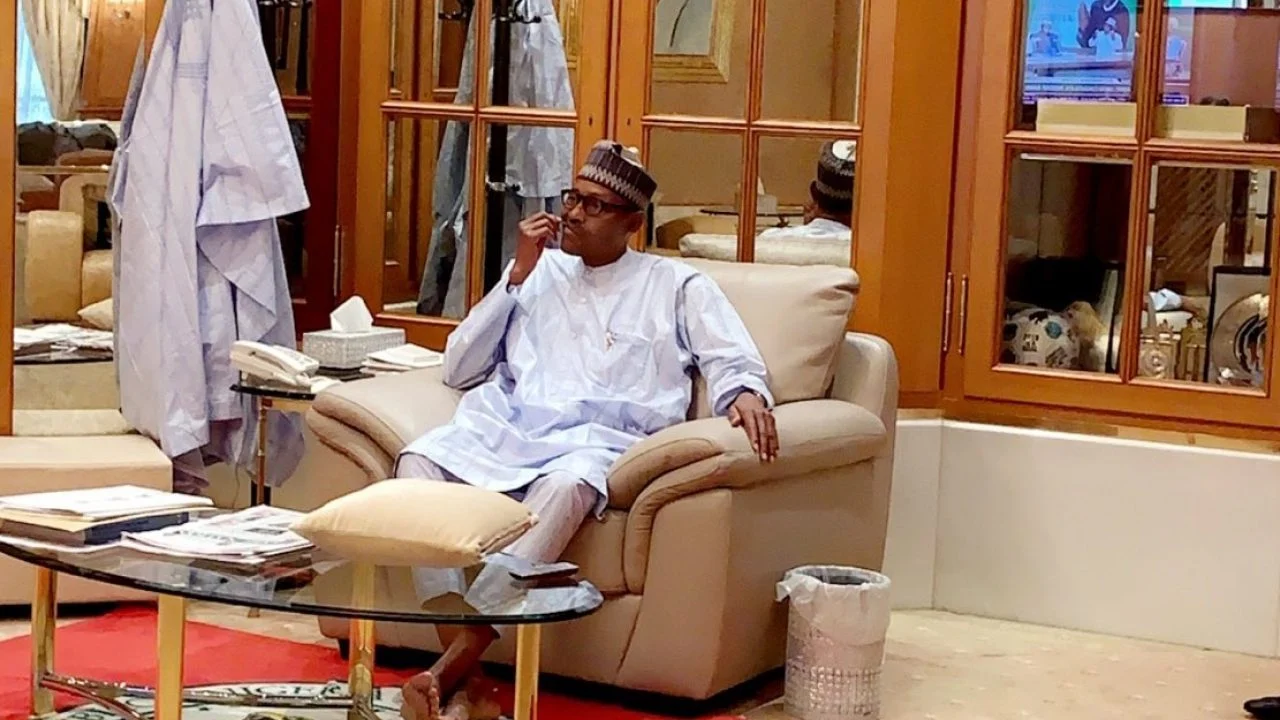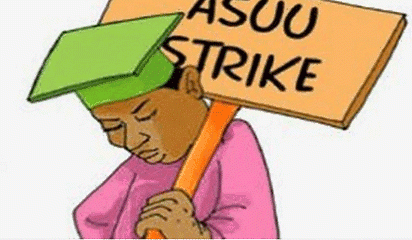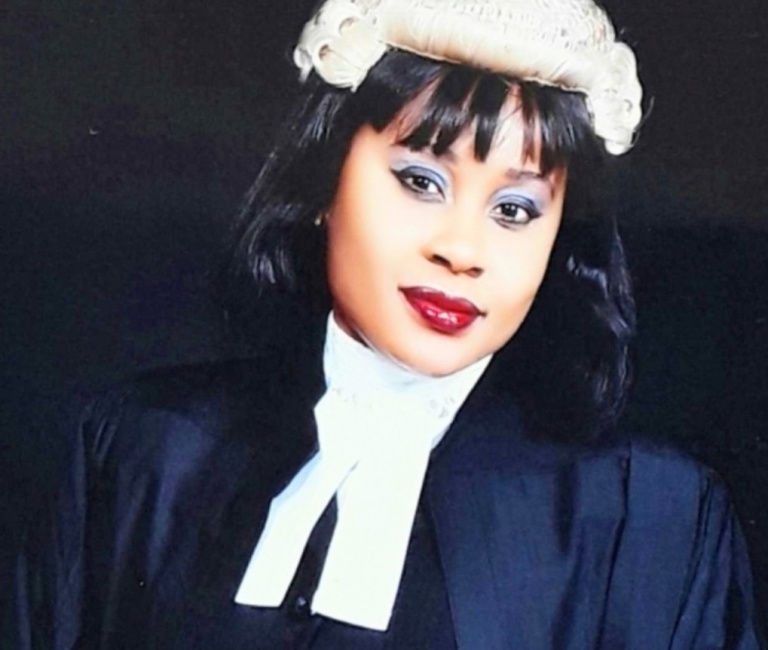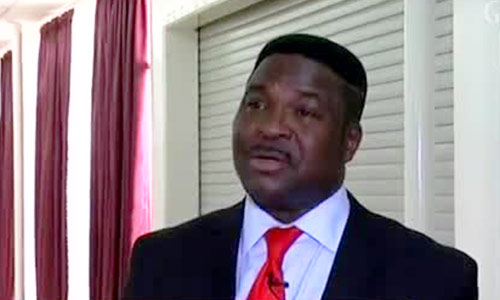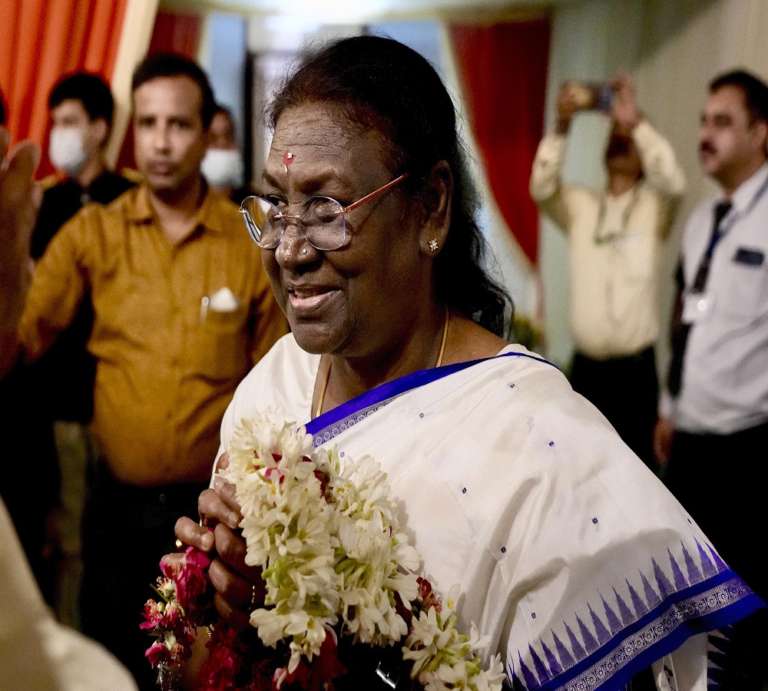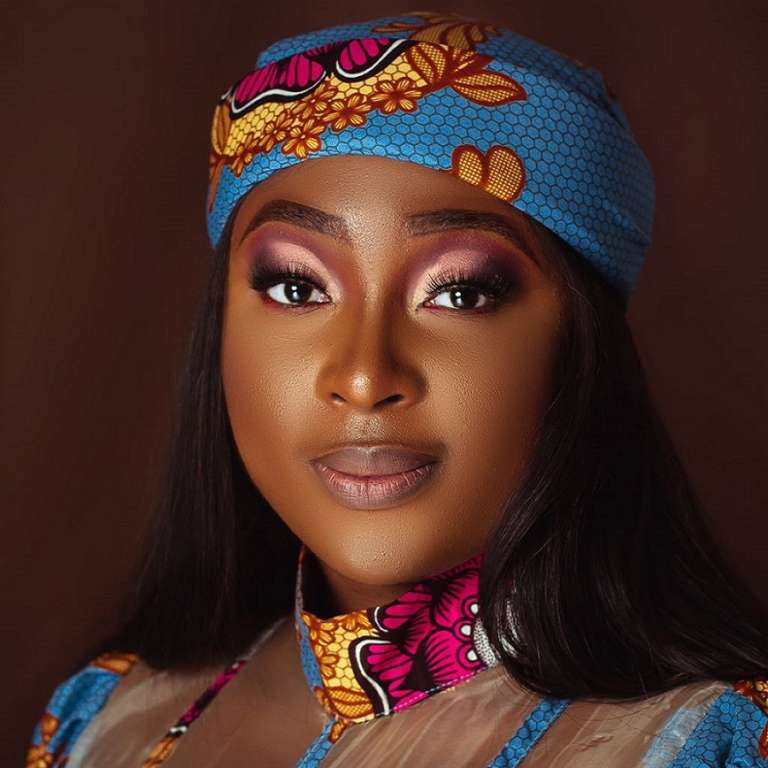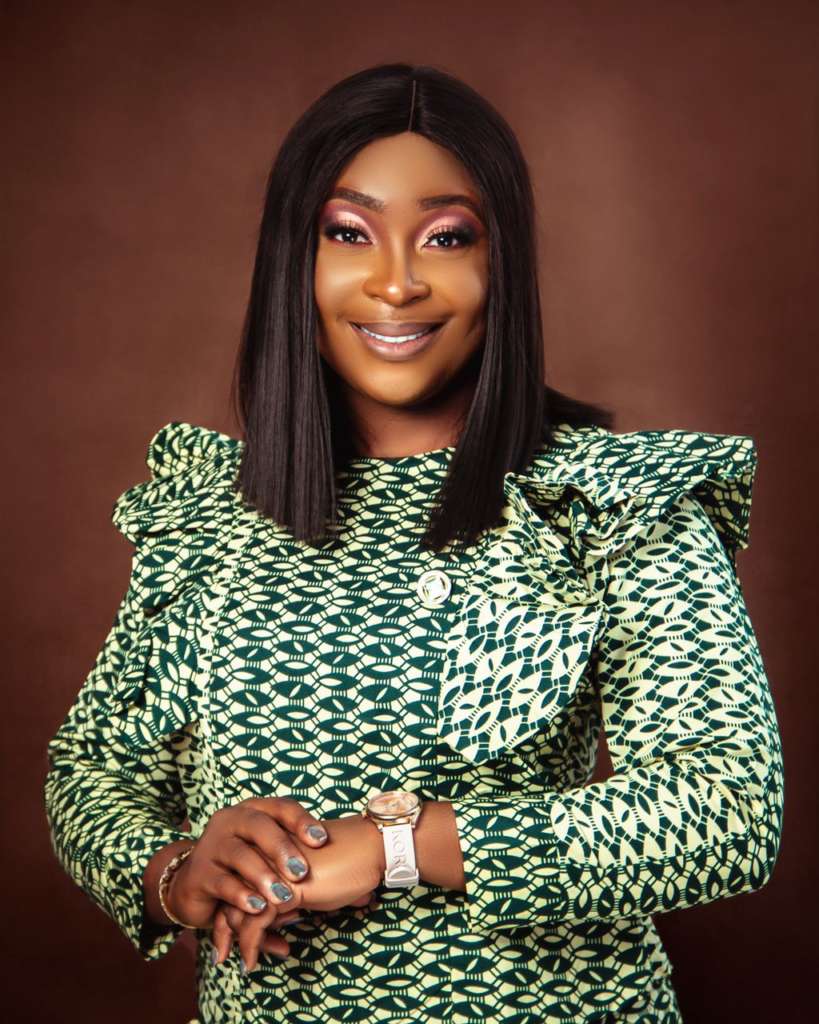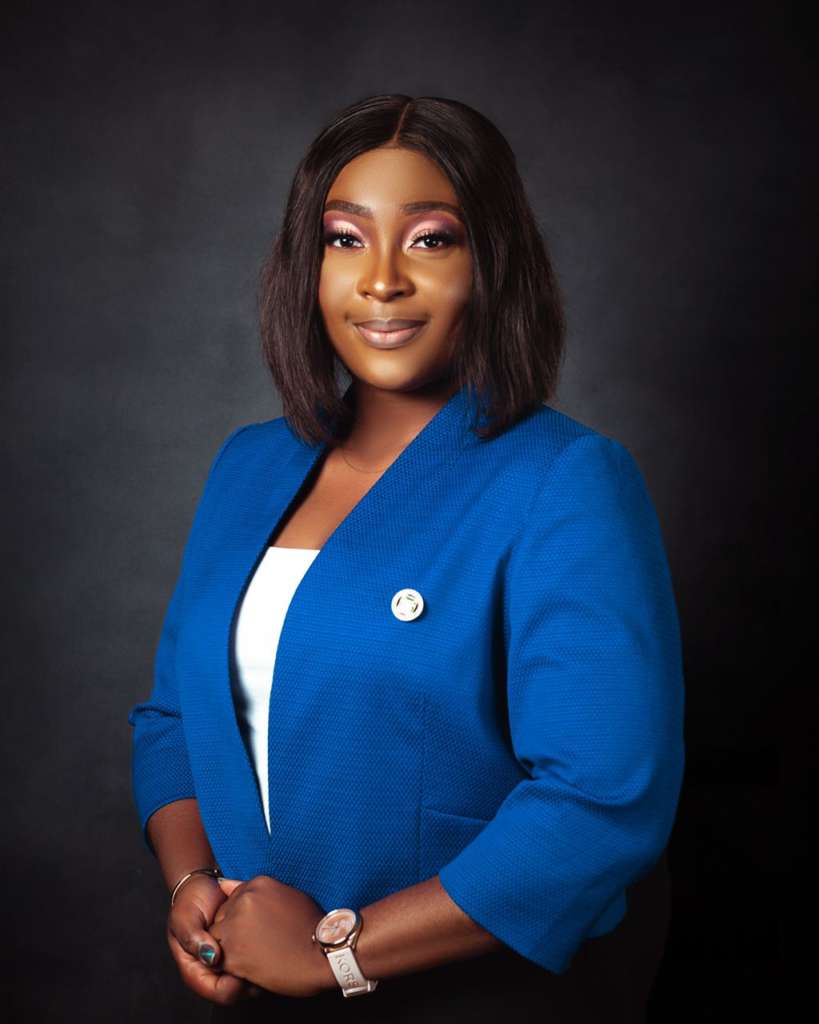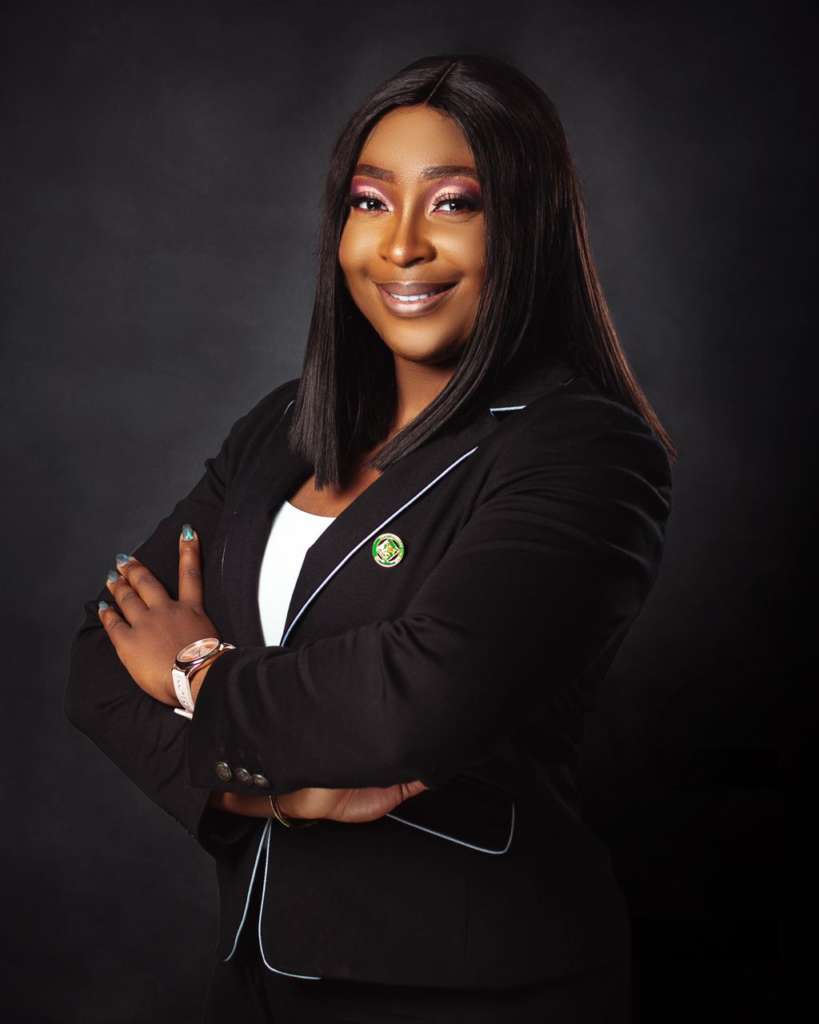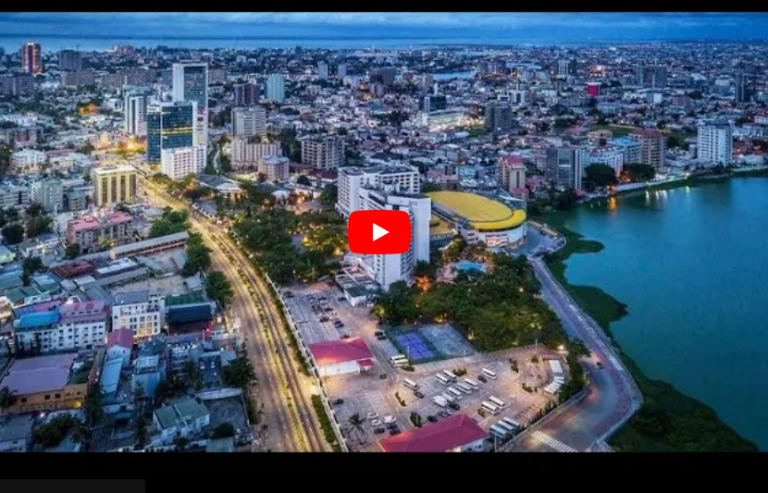By Chief Mike A. A. Ozekhome, SAN, OFR
INTRODUCTION
Today, Nigeria is in a terrible quagmire; a deadly dilemma; a complete culde sac. There is trouble; real trouble. In all aspects of life, Nigeria is sick. Very sick. Critically ill To say she is on an uneasy life–support machine is simply saying the abvious.
Everywhere and everything are toxic. Even the air we breathe is toxic. It reeks of odious and smelly putrefaction from caked blood of innocent Nigerians split open by afternoon baking sun (apologies, Ayikwei Armah: “The beautiful Ones Are Not yet Born”).
Our farmlands are death mines,laden with deadly booby-traps set up by rampaging Fulani herdsmen.They hug AK-47 riffles that spit fire on a daily basis against innocent farmers who have offered no provocation. The once-upon-a-time teeth-stained, kolanut-chewing, smiling and friendly herders moved harmlessly across the highways, footpaths and farmpaths. We, as children growing up in the 60s and 70s, usuallly came out to sing with our near national anthem rendition, to herald them in. What has happened? I don’t know. Or, do you? They have since turned into vicious, blood-sucking monsters that decimate our local population. Our song in those days was, “Malu koga, malu, koga, daba daba koga; ikpisa yeghe the akhia; edunu kpotha mho abo; ne the gbea kpu pku” (translated: “cows with hooves, cows with hooves; they are led by weak elderly men; men who carry sticks, with which they flog the cows kpu kpu”). We would come out of our huts, hailing them, giving them water to conserve in their pitchers made of cow skin and tied to their shoulders. Those were the good beautiful old days. Not anymore.
Today, however, like in Wole Soyinka’s metamorphosis of Brother Jero in “Jero’s Metamorphosis” (1973), which followed “The trials of Brother Jero” (1963), these once innocent herders have metamorphosed into murderous and remorseless savages, killing, maiming, piling and raping farm owners and peaceful indigenous land owners right on their farms and in their homes, with gusto, eclat and a vainglorious sense of triumphalism.
In our homes and on the roads, Nigerians are no longer safe. In the markets, schools, workplaces, air, train, waterways and forests, death stares the average Nigerian on his wrinkled face. Nigeria has become a grissly killing ground. She has become the poverty capital of the world, snatching the diadem from India. There is seering agony, mass disenchantment and grave disillusionment. Hunger and abject penury live with us. Melancholy and gnashing of teeth overwhelm Nigerians. Hopelessness and haplessness sleep with us on the same wretched beds. Hot tears, sorrow, pains, pangs and blood remain gods and goddesses in whose pulpits Nigerians worship in their homes. Schools are hurriedly and prematurely shut down, not from fixed holidays; not from unanswered ASUU’s 7 months strike engineered by a clueless government; but to prevent students from being abducted and kidnapped by rampaging armed bandits and kidnappers that operate as a state within a state. The government watches helplessly, wriggling its hands with shocking resignation to fate. Non-state actors now commonly challenge the sovereignty and suzereignty of Nigeria, planting their flags on Nigerian soils, collecting taxes, from, and giving citizens passes and identity cards. Armed bandits kidnap school children and instruct their parents to procure for them, large quantities of tarodo, tatashe, tomatoes, maggi, onions, garri, beans, rice, palm oil, vegetable oil, salt and other condiments. They need the ingredients to feed their children and keep them alive for ransom to be paid for their release. This is glaring evidence of a failed state.
Fighting corruption, a mantra once hugged by this government, during political campaigns, has since graduated from a kindergarten school to a post graduate institution, strutting about unchallenged, like a proud peacock. Government appointees brazenly steal billions of dollars, with the EFCC and ICPC still busy pursuing ruling government’s political opponents. They use the ugly and primitively stolen money to mop up scarce Dollars, leaving to the present horrific artificial shortage of dollars, a situation of one dollar exchanging for about N740. And still counting.Didn’t this government meet the dollar at between M160 – N175 in 2015? Gosh! We are now No.148 out of 180, and the second most corrupt Nation in West Africa. Courtesy, Transparency International’s Anti-corruption Perception Index). Inflation increases geometrically. Debts accumulate daily. We now borrow money to service debts,not payment of the real debt! Next generations have mountainous debts hanging on their necks. The present government has mortgaged our individual and collective future with reckless abandon.
Nigeria has never been so polarized and divided along primordial ethnic, religious and linguistic cleavages.
Nigerians from all works of life appear shell-shocked at a country they can no longer recognise within seven years of Buhari’s disastrous government. Well, I am not one of them. I had seen this ugly situation coming. Like Nostradamus, the man who saw tomorrow; like the Oracle at Ile-Ife that gazes into the future and pronounces a future Ooni, I saw these perilous times coming. I had predicated all these in the very first 50 days of this government.
Buharists, Buharideens, his bootlickers, ego masseurs and obsequious fawning passengers in the corridors of power mocked me. They abused and bayed for my innocent and patriotic blood. But history and current happenings have now completely vindicated me. Oh, thou sweet history. Oh archivist google that never forgets!!! In this piece, I now serve you my predictions, after analyzing Buhari’s first 50 days in office, in a piece titled, “Is president Buhari overwhelmed by serious issues of Governance?” (http://thestreetjournal.org).
https://thestreetjournal.org/opinion-is-president-buhari-overwhelmed-by-serious-issues-of-governance/.
https://thestreetjournal.org/is-president-buhari-overwhelmed-by-serious-issues-of-governance-by-chief-mike-ozekhome-san/.
This piece was written and first published on 19th July, 2015, just only after 50 days of Buhari’s tenure! Now, read on:
“IS PRESIDENT BUHARI OVERWHELMED BY SERIOUS ISSUES OF GOVERNANCE?
“Let me confess that I am aware of some commentators’ argument that it is too early in the day to assess President Muhammadu Buhari’s thrust and style of governance. After all, they argue that he has only spent about 50 days out of the expected 1,460 days of his four-year tenure. That may very well be so. But, a proverb in my Weppa-Wanno, Etsako language (I disagree with some irredentists who try to label my language a dialect), states that, “oto laza le aghua noa khi ukpuwah” (It is the very day a puppy is littered that people would decipher if it would develop a curved tail). In other words, the morning tells the day.
“Although he has himself publicly confessed that he cannot be expected to perform optimally at the same pace, and with he same vigour and strength, as when he was Governor of old Borno State at the youthful age of 33 and later, Head of State at 40, it would be most uncharitable, even disingenuous to accuse him of senility, or anything near it. Far from it, President Mohammadu Buhari (PMB) is still very agile and quick witted. After all, octogenarians (near nonagenarians), such as Chief E.K. Clark, Chief Olaniwu Ajayi, Chief Ayo Adebanjo, Chief Richard Akinjide, San, et al, stormed the Nigerian National Conference in 2014. Their intellectual prowess, coupled with their plenary and Committee contributions to all issues were such as to leave us, the younger generational elements, panting and gasping for breath. Indeed, 85-year-old Alhaji Ahmed Joda, (one of the famous “super permanent Secretaries” of the Gowonian era, step out, Chief Philip Asiodu, Chief Allison Ayida, et al; more on this later), headed PMB’s transition Committee. Not a few Nigerians believed however, that the slow pace of the Committee’s work was ascribable to its gerontocratic leaning. I have no opinion here!
“THE BUILD UP OF EXPECTATIONS
“The campaign mantra of the APC was “change”. It was APC’s campaign that former President Goodluck Jonathan had performed woefully, below expectations. The party tagged him clueless, lily-livered, and that he ran a very corrupt administration. Many, nay, most Nigerians, bought this heavy propaganda. Social media activists, especially, took Jonathan to the cleaners, tearing him to pieces, tarring him with the paintbrush of shame, odium and gross underperformance.
“The build-up was high. The anti-corruption mantra was held aloft like a banner of victory. The taming and extirpation of insecurity, root and branch, was orchestrated like a stuck record (remember PMB’s famous “I will lead form the front”). He was believed because he is a retired Military General and former Head of State.
“SOME COMPARABLE REMINISCENCES
“The build-up was what was expected of Enugu Rangers vs Mighty Jets football club (of Jos), or Raccah Rovers vs NNB, Bendel Insurance football club of Benin vs IICC shooting stars football club of Ibadan football championship final encounters of the seventies and eighties. I was then in the Secondary school and University. National stadium, Lagos, Ogbe stadium, Benin City, Liberty stadium, Benin City, Adamansigba stadium, Ibadan, Kano stadium, and Jos stadium, Jos, were a must to watch these matches. Nigeria then stood still and on tenterhooks on weekends. A pin drop could be heard in any of the stadia where these legendary clubs played. Fans and spectators figuratively stopped breathing. Ace commentators, Ernest Okonkwo, Tolu Fatoyinbo and Folorunsho Ishola blared, their names. “Chairman” Christian Chukwu, “Mathematical” Segun Odegbami, “Chief Justice” Adokie Amiesimeka”, the Atuegbu brothers, Haruna Ilerika of Stationery stores of Lagos, Emmanuel Okala, Felix Owolabi, Mudashiru Lawal, Bright Omokaro, Friday Elaho, and Joe Erico, amongst others, held sway. Sam Garba Okoye, Ismaila Mabo, Yakubu Mabo, Benedict Akwuegbu, Olayiwola Olagbemiro, Sam Pam, Ifeanyi Onyedika, Ogidi Ibeabuchi, Christian Madu, Jossy Lad, Amusa Adisa, Samuel Ojebode, Joe Appiah, Moses Otolorin, Kunle Awesu, Alabi Aisien, Kadiri Ikhana, Sunday Eboigbe, George Omokaro, Agboinfo, Sylvanus Oriakhi, and Henry Ogboe, reigned supreme.
“Sorry, pardon me, if I digressed too far off as this write up is not about football. It was to show the passion with which the clubs played, and the high expectations of Nigerians. Football in those days was food. It was life. Nothing else mattered. It was the oxygen Nigerians breathed. Glued to small radio sets and the 4 pm black and white television sets, Nigerians watched with bated animation as these clubs slugged it out. Enemies suddenly became friends. All Nigerians were united. No foe.
“That was the same way Nigerians expected PMB to hit the ground running. They expected him to be, not just a magician in the mould of Professor Peller, but also a miracle worker in the mould of Chris Oyakhilomen, all rolled into one. The stakes were very high during the campaigns. They are higher today after his unexpected victory.
“THE ANTI-CLIMAX
“However, barely 50 days into PMB’s administration, Nigerians (read the print and social media, watch TV analysis and columnists’ opinions), are beginning to ask many questions. Were their hopes misplaced? Were they hallucinating? Are they in a state of somnambulism, or having feverish nightmares? Reasons? They cannot see signs of the promised “change”. Nigerians are not the most patient people on earth. They love quick-fix-it attack on issues, with “immediate effect and automatic alacrity”. Nigerians cuddle panache, glamour, colour, razzmatazz, and the fanciful. They even love the drama of actions, even if merely playing to the gallery. They yearn for populist actions, the type of IBB when he rejected the IMF, even though he later forced down their unwilling throats, the bitter pill of structural adjustment programme (SAP). Nigerians are seeing an anti-climax. And they are surprised and deflated. Was this the change they voted for? They are wondering!
“PMB’s MANY MISSTEPS, THE FAUX PAS
“When he took the oath of office on 29th May, 2015, PMB made one of the most memorable quotes of the century of “I belong to everybody and I belong to no one”. Some placed it in the pantheon of Murtala Mohammed’s great speech, “Africa has come of Age”, delivered on 11th January, 1976, at the OAU extraordinary meeting, warning the West, including America’s Gerald Ford, to keep off the internal affairs of Africa, while castigating the evils of apartheid.
“After this great outing, most Nigerians expected a national broadcast as to the thrust and policy direction of his government. None came. None has come till date. Only haphazard, piecemeal, fire brigade statements on sundry issues, at sundry occasions. No rhythm, no rhyme, no clear message. PMB, are you hearing me Sir?
“THE FIRST APPOINTMENTS – A MISSTEP
“Then, came the first two appointments. First, Mr Femi Adesina (erstwhile President, appointed Special Adviser on Media Affairs (SA). Then the shocker: Mallam Garba Shehu introduced duplicity with his appointment as Senior Special Assistant (SSA), for the same media job. Many Nigerians wondered why the duplication, for any of both gentlemen were eminently qualified to serve as his spokes-person, Shehu having also been a past president of NGE. “Where was the cut in government spending?”, they wondered. Nigerians queried why, at least, there was no pretence at making Garba an SSA on Communications and Strategy. Just something different. Why regurgitate PDP and GEJ’s Ruben Abati, Doyin Okupe and Ahmed Gulak? Where was the change, with both spokespersons already publicly contradicting each other?
“PMB’s OTHER SHOCKING APPOINTMENTS THATLATER FOLLOWED
“If Nigerians were taken aback by the disingenuousness in the appointment of Adesina and Shehu, they were shocked to their bones and marrows with the next seven appointments made, all from the Northern geopolitical zones of the country. Wait for it…
Lt Col MuhammedAbubakar (ADC) from Kano, North West. For engaging in a supremacy battle with this chosen one, Mr Abdulrahma Mani, another Northerner, was fired. The next is LawalKazaure, State Chief of Protocol (North), Ahmed Idris (Accountant General, Kano state, North West); Mordecai Baba Ladan (North West), and Mrs Amina Zakari (from Kazaure, Jigawa state, North West, as Acting Chairman of INEC).
“Never mind that in sections 153, 154, 155, 156 and 157 of the 1999 constitution, there is no provision for “Acting Chairman”; but a Chairman before whose appointment, the President, under sections 154 (1) and (2), must “consult with the Council of States” and the Senate must confirm.
“Finally, Lawal Daura (from Daura, PMB’s home town, North West), was appointed Director General of the State Security Service (DSS). Ita Ekpeyong from Cross River state was made to kiss the dust to pave way for Daura.
“Thus, of nine appointments so far made by PMB, eight are from the Northern parts of the country, leaving the entire Southern parts with only Femi Adesina (South West). Many are wondering whether this is a carefully crafted odeon of Northernisation of the Government of the Federation. Nigerians are aghast.
“NON APPOINTMENT OF MINISTERS
“Section 147 of the 1999 Constitution provides for the appointment of Ministers by the President, subject to confirmation by the Senate. The word “shall” which enjoins a mandate, is carefully and advisedly used by the makers of the Constitution. There shall be at least one Minister from each of the 36 states of Nigeria, with one from the Federal Capital Territory of Abuja.
“The Ministers are to help the President discharge the duties of his office effectively. It is said that even God himself, as Almighty, Omniscient and Omnipresent as He is, still requires the assistance of Angels and Saints. Not so for PMB. Well over one and a half months after his appointment and well over three months after he became aware he had been elected President of Nigeria when GEJ conceded defeat and congratulated him, PMB is still without Ministers, operating alone, like a lone ranger, in the mould of a Military dictator. His slow, nay sluggish pace, has become worrisome to most Nigerians.
“Commenting on his lack lustre performance within the first 30 days in office, especially on the non-appointment of Ministers, an economist, at Capital Economics, London, Mr John Ashbourne said:
“Every week that Nigeria goes without a Cabinet increases the chance that it will face a dangerous shock – whether a revenue collapse or a currency crisis…leaving the Federation without a Finance Minister would be a questionable choice at the best of times; doing so during a period of economic instability is difficult to explain.”
“Nigeria Labour Congress President, Comrade Ayuba Wabba, who admitted that 30 days was too short to assess PMB’s performance, had however, declared that Buhari was yet to face the realities on the ground. He argued that the slow pace of the administration (one month after being declared the winner of the Presidential election on March 28), was a pointer to the fact that the President was yet to acquaint himself with the situation on the ground.
“A RETURN OF THE OLD ORDER
“As captured by Vanguard Online of June 22, 2015, in an article written by veteran Eric Teniola, a former Director in the Presidency, he graphically captured the return to the old order of lone ranging, thus:
“FROM January 15, 1966 till June 3, 1967, Nigeria had no Ministers. That is a period of over fifteen months. The two military rulers who ruled during that period——Major General Johnson Thomas Umanakwe AguiyiIronsi (1924-1966) and General Yakubu Dan-Yuma Gowon (80) constituted permanent secretaries as members of the Federal Executives Councils.
“As for General Ironsi, the following were appointed—Mr. Ige (Agriculture and Natural Resources), C.O. Lawson (Communications), Alhaji Musa Daggash (Defense), Allison Ayida (Economic Development), S.S. Waniko (Education),T. Eneli (Establishments), Edwin O. Ogbu (External Affairs), Abdul Aziz Atta(Finance), B.N. Okagbue (Health), Phillip Asiodu (Industries), Grey Eronmosele Longe (Information), Alhaji A. Mora (Internal Affairs), M.A. Tokunbo (Labour and Welfare), H.A. Ejeyuitchie (Mines and Power), Alhaji Abdulrahman Howeidy (Special Duties-Internal Affairs), Alhaji Sule Kolo(Trade), H.O. Omenai (Transport), S.O. Williams (Works and Housing), Alhaji Sule Katagum (Chairman of the Federal Public Service Commission-Civil Service, A.E. Howson-Wright (Chairman of the Nigerian Railway Corporation, A.I. Obiyan(Chairman of the Nigerian Ports Authority)and the Attorney-General and Minister of Justice, Chief Gabriel Onyiuke.
“There was also the all-powerful Chief Francis Nwokedi, who was Permanent Secretary, Special Duties and of course, Chief Pius Okigbo. Mr. S.O. Wey was in all but name the Secretary to the government.
“As for General Yakubu Gowon we are all aware of his preference for Permanent Secretaries. The Permanent Secretaries were the ones that paved the way for his coming to power on July 29, 1966 during the historic meeting held at Ikeja Cantonment. So for the first ten months of his administration he had no Ministers. He relied heavily on the counsel of Permanent Secretaries and Judges who administered the country.
“They include Sir Adetokunbo Ademola(Chief Justices of the Federation), Alhaji Sule Katagum(the head of the Federal Civil Service Commission),the Solicitor General-Biliaminu Oladiran Kassim. Others are Mr. Phillip Asiodu, Alhaji Ahmed Joda, Mr.Eneli, Mr. B.N. Okagbue, Mr. Allison Ayida, Mr. Phillip Asiodu, Alhaji Abdul Aziz Atta, Mr. Buba Ardo who later became Supreme Court Judge, Alhaji Musa Daggash,Prince Festus Adesanoye who later became the Osemawe of Ondo and Mr. S.O. Williams. Some of them were referred to later as “super permanent secretaries.” And Mr. S.O. Wey who later became the Secretary to Government. There was also Mr. Ime Ebong who later became Permanent Secretary, Ministry of National Planning.
“It was not until June 3, 1967 that General Gowon brought eminent Nigerians including Chief Obafemi Awolowo, Chief Joseph Takar, Mallam Aminu Kano, Mr. Wenike Briggs, Alhaji Shehu Shagari, Alhaji Shettima Mongunu, Chief Okoi Arikpo, Chief Anthony Enahoro, Alhaji Femi Okunnu, Chief A.Y. Eke and Chief Edwin Clarke into his cabinet. Chief Obafemi Awolowo left the cabinet in 1971 for personal reasons. He later appointed some Military officers into his cabinet. They include Major General Emmanuel Eyo Ekpo (Agric) and Natural Resources), Brigadier Olusegun Obasanjo (Works and Housing), Brigadier Emmanuel Abisoye (Health), Lt. Col. Ahmadu Alli (Education), Captain OlufemiOlumide (Transport), Brigadier Murtala Muhammed (Communication), Brigadier Henry Adefowope (Labour) Col. Dan Suleiman (Special Duties) and Brigadier Mohammed Shuwa.
“Even then General Gowon did not make them members of the supreme military council yet he allowed the Permanent Secretaries to attend the meetings of the Supreme Military Council as observers. Worse still, Ministers could not pass memo directly to General Gowon. This arrangement created problems between his Ministers and his Permanent Secretaries till he was removed on July 29, 1975.
“Now forty –years after, the same scenario is being played.
“The recent appointment of Alhaji Ahmed Joda as Chairman of transition committee and the submission of his 800-page report to President Muhammadu Buhari is to emphasise that retired and serving civil servants will play key roles in the regime of President Muhammadu Buhari. Even though he is now a turned democrat, the military blood in the President is still alive. I am of the view that the Military trusts the civil servants more than the politicians and the civil servants in turn trust the Military than the politicians. The role to be played by the retired civil servants will become clearer in the months ahead. Let us keep our fingers crossed”.
“I cannot agree more with this intellectual analysis of the challenge at hand. It is a clear and present danger. PMB needs to act swiftly. Very swiftly.
“BOKO HARAM INSURGENCY AND SUNDRY CHALLENGES
“The Boko Haram insurgency has intensified geometrically, with power supply getting worse, and more epileptic. Internally, PMB appears to have no control over his APC party, which he ought to be leader of, perhaps because they regard Bola Tinubu as the national leader.
“The party is imploding instalmentally. Impunity in all facets of life has increased. PMB is still running the government solo, in the manner of a military dictator, contrary to the provisions of the Constitution which compels him to have Ministers.
“REFUSAL TO DECLARE ASSETS PUBLICLY
“PMB has refused to make public, the declaration of his assets as he promised during electioneering campaigns, to the applause of Nigerians. Yes, he satisfied the mere constitutional requirement of doing so before the code of Conduct Bureau. But, like Yar’adua, he needs to do more by declaring them publicly, if only to oil the wheels of his change talisman. He had promised to do so. Voluntarily. So, no one should tell Nigerians that he has satisfied the provisions of section140 of the 1999 constitution, by declaring his assets as a precondition for taking the oath of office. That is the letter of the Law. What about its spirit, the morals?
“There is despondency and hopelessness everywhere, with the government exhibiting no real sense of direction, mission or vision. The ship of state appears rudderless and directionless, with his ruling APC party still talking and behaving tough as if it is still in the opposition. It still shadow boxes, with imaginary enemies, forgetting it is now in power.
“CORRUPTION
“Corruption, which has become the 37th State of Nigeria and indeed, the wealthiest at that, is not climbing down from its imperious monstrous height. Rather, it is waxing stronger and becoming more and more endemic, ravishing the weak fiber of the Nigerian society with reckless abandon and impunity. Corruption now mocks all of us with utmost derision. It dares us. It spits in our faces. What is PMB doing about it?
“WORSENING AN ATMOSPHERE OF INSECURITY
Insecurity is becoming more frightening, with Boko Haram which had been massively degraded and nearly decapitated before PMB’s oath of office on May 29, waxing stronger and stronger, and indeed becoming more daring and defiant. Over 600 people have been mindlessly killed in the last few weeks in the renewed upsurge of violence and attacks. Innocent Nigerians are murdered in cold blood.
“Kidnapping cases have since increased on a monumental scale, with Judges, Pastors, Rev. Fathers, Monarchs, Women, Children and Men, becoming daily victims in the nefarious activities of these marauders. There is still no major national broadcast to Nigerians as to the direction of PMB’s govt. regarding his policies on education, infrastructural development, national ethos, anti-corruption war, or how to grow the economy, and give jobs to the teaming unemployed youths of Nigeria, unemployed of whom he had promised Five Thousand Naira (N5,000.00), monthly stipends before they get employed.
“WHAT IS PMB’s POLICY DIRECTION?
“There is no single statement about oil subsidy and emergency oil subsidy merchants, who are bleeding the Nigerian economy dry and threatening to asphyxiate and vanquish already hapless Nigerians.
“The bi-camera National Assembly is in turmoil with no positive presidential intervention, to save Nigeria’s hard earned democracy, except threats to impose external leadership. Nigeria appears to be wobbly, groggy, fumbling and near prostrate. What is the policy direction of PMB regarding the above issues? I don’t know. I do not know if you know.
“FRITTERING AWAY NIGERIA’s GOODWILL
“PMB, in my humble opinion, is busy frittering away the groundswell of goodwill and affection Nigerians bestowed on him on March 28. Ex-President GEJ did it and paid dearly for it. Although he was sworn in on May 29, the truth is that he became aware he was the elected President of Nigeria since April 4, nearly 100 days ago, when GEJ called to concede defeat and congratulate him. Till now, he has not even appointed a Secretary to the Government of the Federation (SGF), the clearing house and heartbeat of any government, Chief of Staff, Principal Secretary, etc. Government business has literally ground to a halt, with no money in circulation. All ministries are virtually dead, with permanent Secretaries afraid to take major decisions or sign any contract.
“NIGERIA, WE HAIL THEE
“Nigeria appears to be in a state of suspended animation, dancing in uncomfortable limbo, like a yoyo, virtually on auto-pilot.
PMB, sir, don’t allow the usual bootlickers, grovelers and fawners deceive you by telling you that you are doing very well. It’s a complete lie. You have so far performed dismally, with no spark to ignite national passion and enthusiasm. No endearing leadership traits have so far been exhibited, to key Nigerians into line.
“Be informed that Nigerians are very interesting and impatient people, easy to govern, difficult to satisfy, and impossible to tyranise, intimidate or browbeat.
“VAIN SHUTTLE DIPLOMACY
“Your missions to Niger Republic, Chad, G7 and AU in South Africa cannot help us. No slave masters like those western imperialists and neo colonial slave drivers will want freedom for slaves or servants. Our neighbours who are jealous of our size and natural wealth have always loathed us.
“These countries won’t help you sir, beyond mere tokenism, crumbs from the masters table. Don’t tell Nigerians you are not a miracle worker or magician. They won’t listen to you Sir. They want you to approximate the two at once, a merger of Pastor Chris Oyakhilomen and Prof. Peller rolled intone. They expect abracadabra from you.
“I support you sir. Nigerians support you greatly. But, so far, your performance has been below average. Certainly not what Nigerians are yearning for. Time is not on your side, whether in age or in performance. The clock is ticking away. Very fast. Inexorably. Seize the sliding tide before it is too late, sir.
“Tell your media aids, to scrutinize the social media for you and see how the tide is turning frighteningly fast against you. Just within three months of your popular and populist emergence as President of 175 million Nigerians, after four gruesome attempts, of sweat, pains, pangs and hear blood. Come out of your shell and become the Abraham Lincoln of our time. Times like these need very strong men. PMB, you can do it. Nigerians want you to be used. I am one of them.
“PMB’S STATE VISIT TO U.S.A
“It was good that PMB seized the first available opportunity to visit U.S.A on President Obama’s invitation. Whilst we may be rolling out the drums to celebrate this diplomatic move, we must not over indulge ourselves as having scored any major breakthrough in the icy relationship between Nigeria and U.S.A. The reason is simple. Whilst PMB was still in the U.S.A meeting with other groups during the State visit, Obama trip to Africa, specifically to Kenya, his pedigree and to Ethopia. Don’t forget that Obama had visited Ghana, a neighbouring country to Nigeria, some years ago, while ignoring Nigeria maximally. All the same, congrats, PMB, even if not much was achieved during state visit. The most outstanding of the minuses is that U.S.A still refuses to sell arms to Nigeria, to curb the malignant Boko Haram insurgency.
“THE AMICABLE RESOLUTION OF NASS CRISIS
“It is gratifying to note that NASS has finally resolved its crisis, which threatened to tear APC apart as snowball into a national calamity of monumental proportions. It took PMB only 20 minutes to give a hard talk to the warring factions. The meaning of this is twofold. First, PMB can assume leadership of APC and call short without necessarily interfering in the internal affairs of a separate arm of govt. the National Assembly. In other words, he cannot act like chichidodo bird envisaged by Ayi Kwei Armah, the authoritative Ghanaian author, in his epic novel, “The Beautiful Ones Are Not Yet Born”, which hates human excrements with passion, but feeds on maggots that wriggle out of human faeces. Lesson: Be in charge without interfering.
“Second, whilst party supremacy should be encouraged and respected, it has its limit, which is that it must never dictate to any of the three arms of govt. under its governance. It must restrict itself to policy formulation and party path finding, but never to act as a tyrant that dictates to duly elected representative of the people. PDP did it, and got its fingers badly burnt and its toes badly bruised.
“Are Nigerians, PMB, APC, Proprietors and Managers of the old football clubs of those glorious days, Enugu Rangers, Raccah Rovers of Kano, Mighty Jets of Jos, Bendel Insurance football club of Benin, IICC shooting stars of Ibadan, Stationery Stores football club of Lagos, and the Nigerian Football Federation, reading, digesting and utilising these tips, these Scott Fitzgerald’s 1925 “The Great Gatsby” recollections, where, in his magnum opus, this celebrated Author explored the themes of idealism, resistance to change, social upheaval and decadence, amongst others? For their future improvement? All from the unputdownable weekly Sunday sermon on the Mount of the Nigerian project, by Chief Mike A. A. Ozekhome, SAN, OFR?”.

